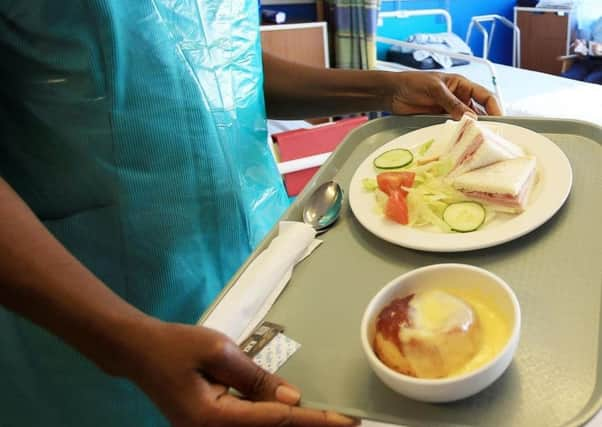Morecambe bay hospitals introduce '˜emeals' to halve huge food waste bill


According to NHS data, University Hospitals of Morecambe Bay Trust (UHMBT) recorded 861kg of unserved food going to waste over one seven-day period in March 2018 – the equivalent of 44.8 tonnes every year.
The figure covers just the excess meals left on the trolley at the end of a meal service, and does not include food that patients leave on their plates when they have finished eating. It includes starters, main meals and desserts during lunch and dinner, but does not include breakfast.


Advertisement
Hide AdAdvertisement
Hide AdIn December 2017, the cost of food waste was an eye-watering £1,050 per week, but UHMBT Chief Operating Officer Foluke Ajayi said that the trust had managed to halve the cost between 2017 and 2018 with the help of technology.
She said: “The Trust has recently dramatically reduced its food wastage through imaginative use of technology – it’s a new electronic system we call ‘emeals’.
“Emeals means that patients now order what they want to eat on the day. The order is taken by staff on the wards using an electronic device and then sent electronically to the catering team, who prepare and cook fresh meals on site.
“A big advantage of the emeals systems is that once a meal has been ordered, it will be delivered to the patient wherever they are in the hospital. So if a patient is transferred to a new ward they will still receive the meal they ordered. If they are discharged, the system will know this and the meal will be cancelled.
Advertisement
Hide AdAdvertisement
Hide Ad“The previous paper ordering process meant that meals were prepared and delivered to the ward it was requested from and would often be wasted if the “new”
patient in the bed did not like the meal requested by the previous occupier of the bed.
“The new emeals system means that patients get a better service and much less food is wasted.
“In December 2017, the cost of food waste at RLI was £1,050 per week, but by December 2018 that figure had reduced to £535 per week.
Advertisement
Hide AdAdvertisement
Hide Ad“This system also saves a lot of valuable staff time, as the staff no longer have to fill in a paper menu and deliver it to the catering team a day in advance, as they used to. This will save over £69,000 per year in staffing costs.
“We will also save approximately £4000 a year, through no longer printing menus.
“As well as improving the service to patients, saving staff time and reducing costs, this reduction in food wastage is also a reflection of the Trust’s commitment to become more eco-friendly and efficient.”
The government has announced a 10-year plan for the NHS, which includes a commitment to tackle waste.
Advertisement
Hide AdAdvertisement
Hide AdHowever, more than 7,130 tonnes worth of meals are currently going in the bin across the NHS in England every year, the data suggests.
Food waste is a “big problem” in the NHS, according to the food and farming charity Soil Association, which campaigns for better food in hospitals.
Rob Percival, policy officer at the Soil Association, said it is often linked to the method NHS trusts use for catering services.
Many rely on pre-prepared meals that are delivered to sites which may not have the freezer capacity to keep any surplus, he explained.
Advertisement
Hide AdAdvertisement
Hide AdHe said: “Trusts should be investing in fresh preparation of meals as opposed to bulk purchasing, which gives catering staff a greater degree of control.
“Then you won’t be dealing with the scenario where you have 1,000 plated meals delivered but you only have 300 orders from patients and the rest goes in the bin.”
The NHS Digital figures reveal that the trust spent £2.7m on food services in the 12 months to March, including labour, delivery and management costs, eqiuvalent to £9.57 per patient for a three-meal day.
During this time, there were 833,970 meals requested by patients.
Advertisement
Hide AdAdvertisement
Hide AdThis would give an average cost of £9.57 per patient for a three-meal day, if no meals were wasted, compared to an England-wide average of £12.59.
According to Mr Percival, the quality of hospital meals could also contribute to a higher degree of waste as patients are more likely to leave leftovers.
He has urged trusts across the country to focus on offering appetising and nutritious meals using high-quality ingredients.
He said: “Adequate nutrition is important for a patient’s recovery and a huge amount of plate waste is generated because food is of a low quality - ready-made, reheatable meals that are highly unappetising.
“It sends a pretty disappointing message about the importance of food to health.
“If the NHS is supposed to be the beacon of health, they should be modelling this.”